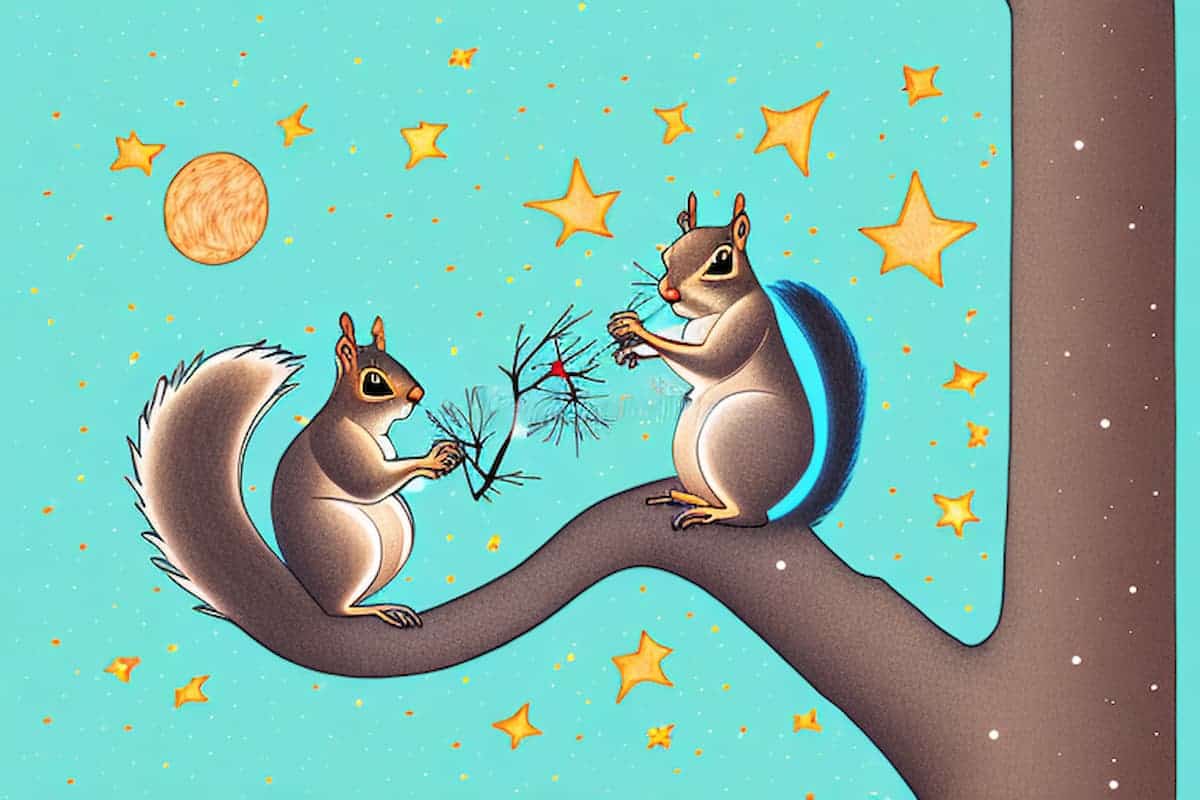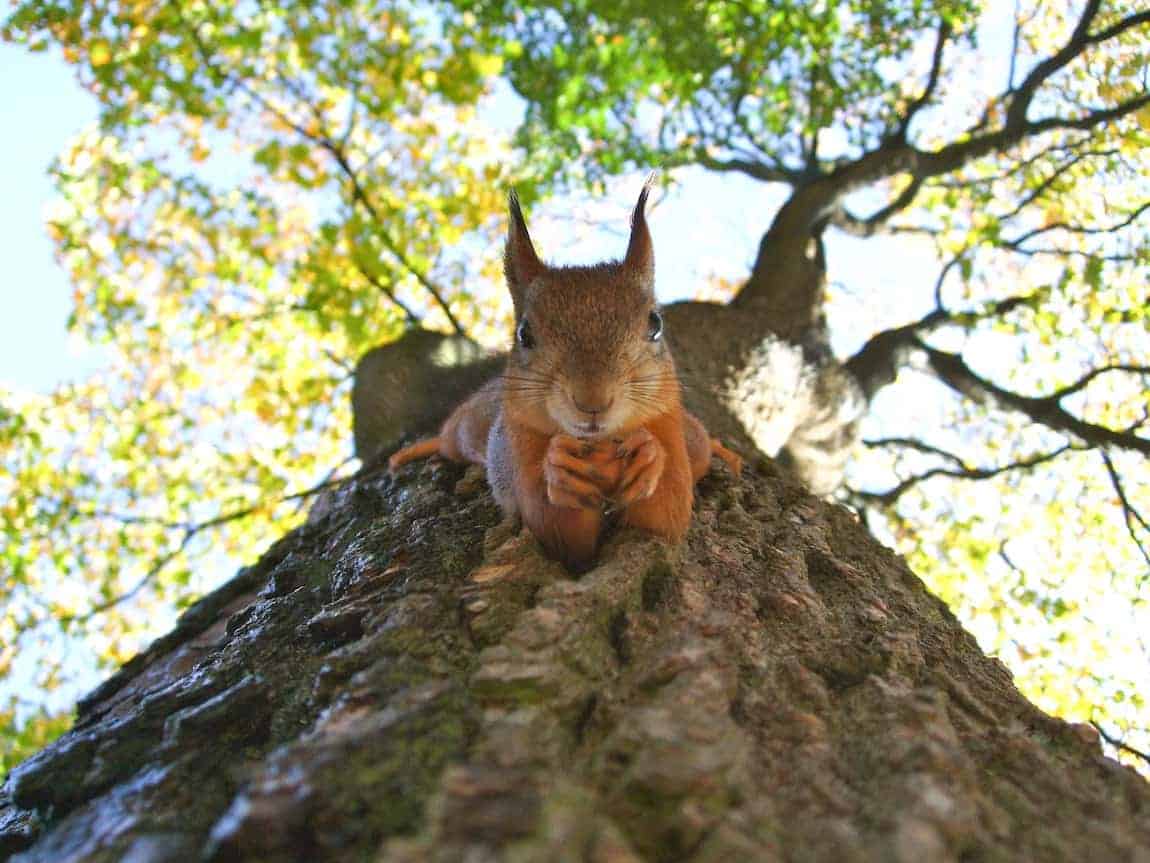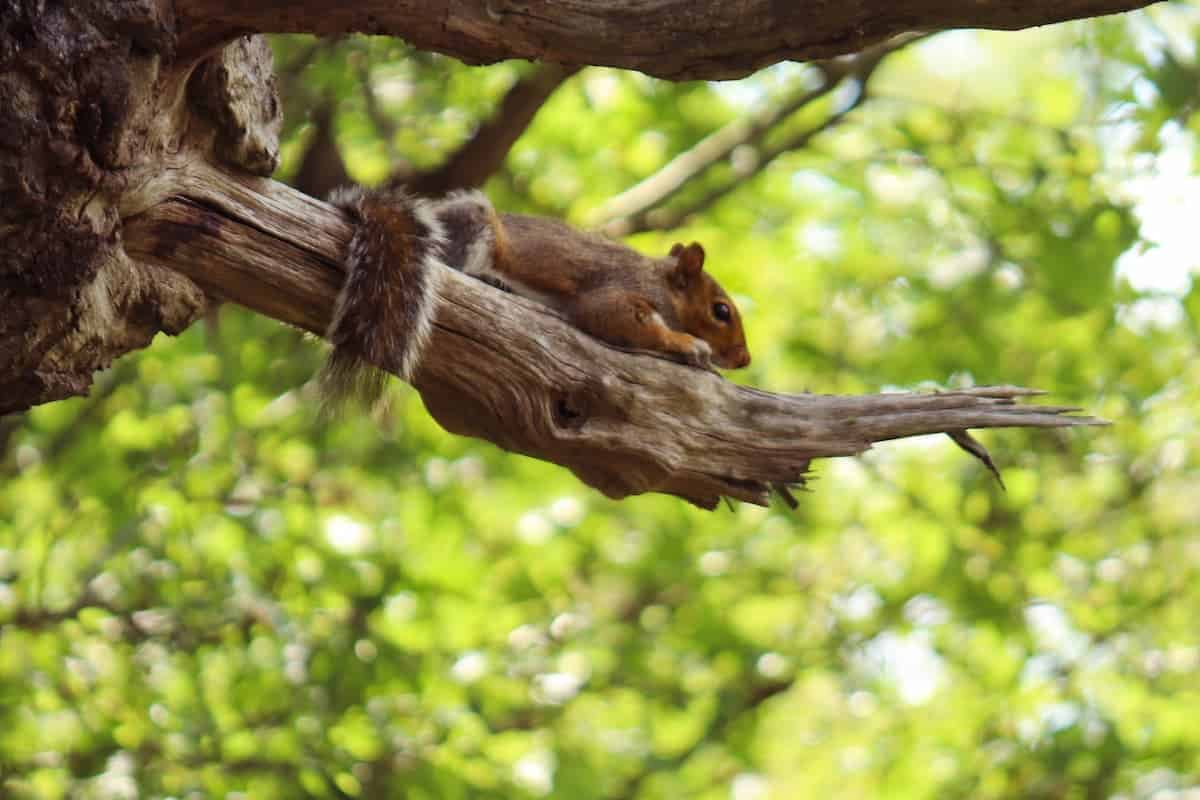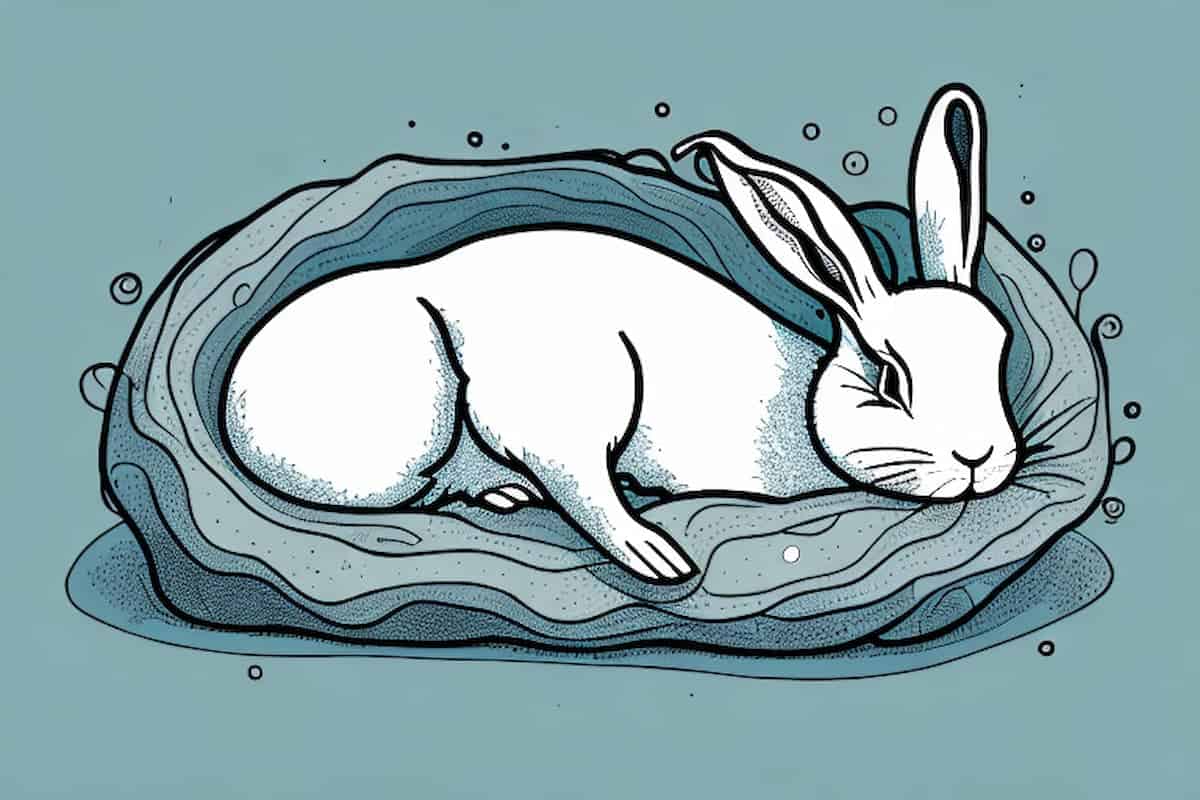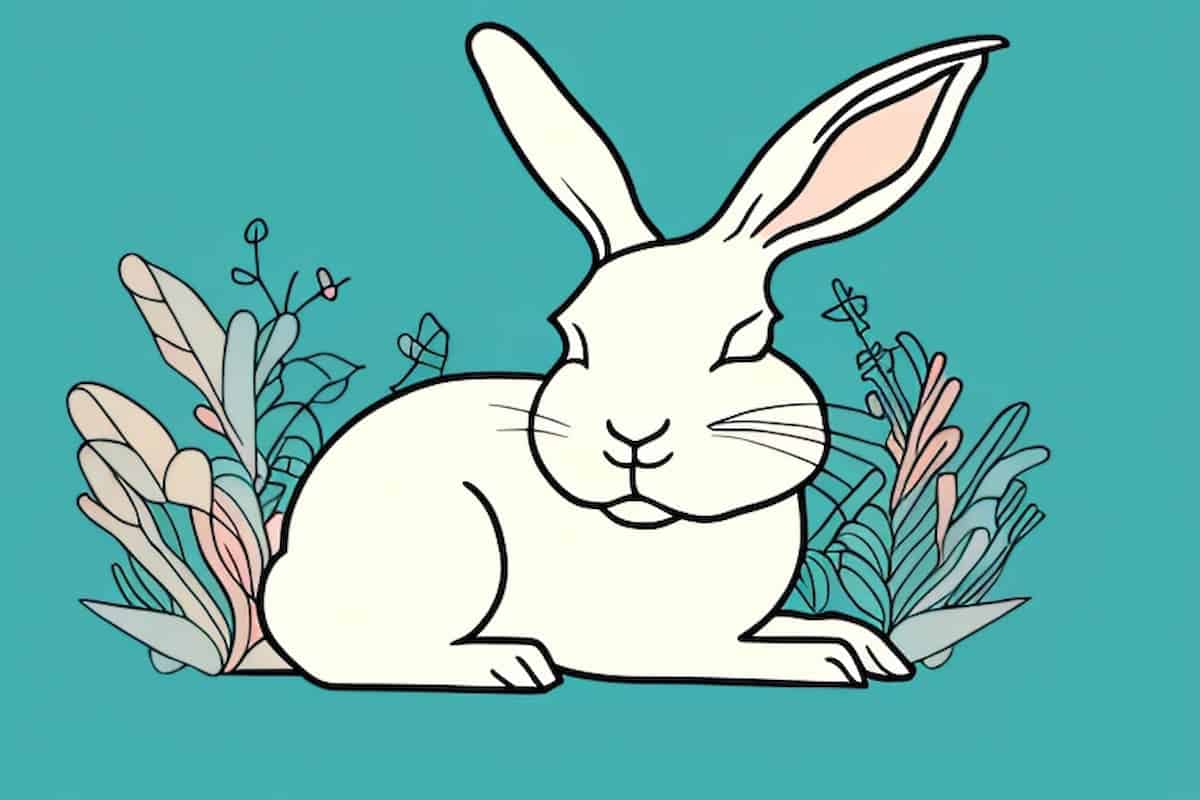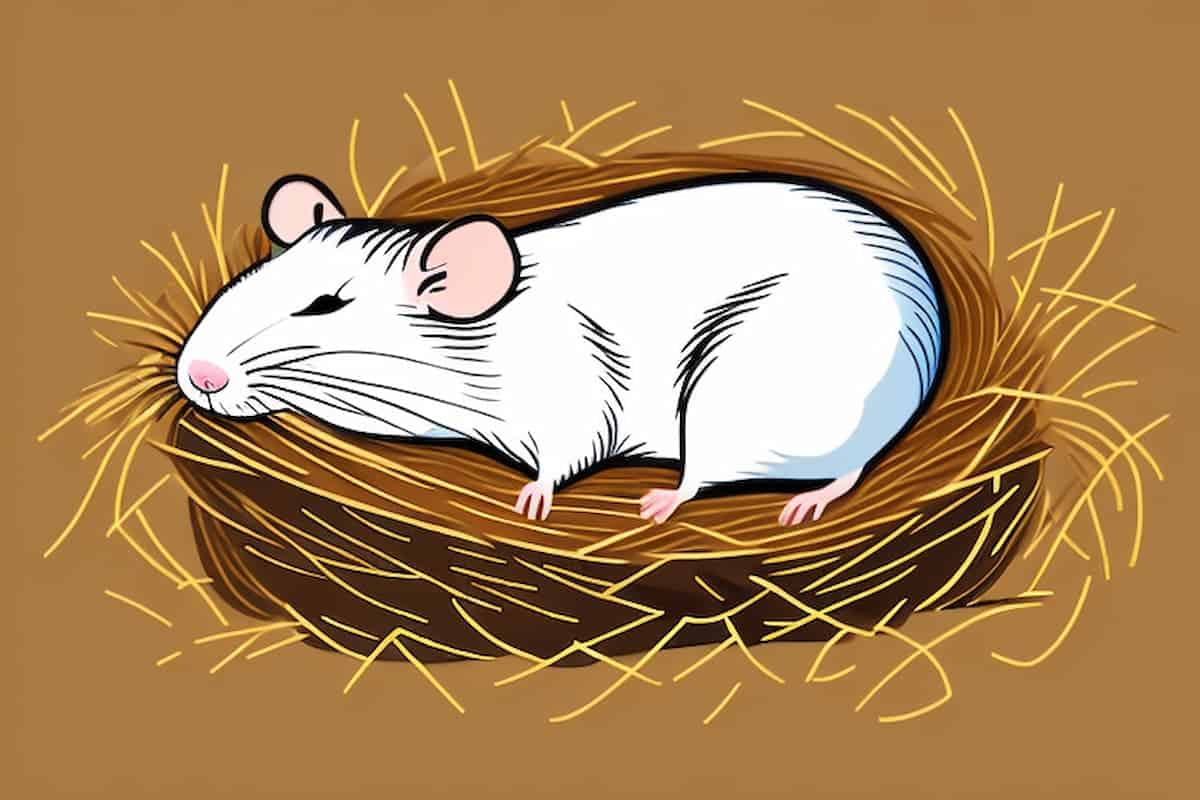Squirrels are popular animals remembered fondly by many. Though they seem energetic and always scurrying around, their activity isn’t constant. Indeed, squirrels must take their daily rest to survive and thrive. So, do squirrels sleep at night like people do?
What Time Do Squirrels Sleep?
For the most part, squirrels are crepuscular animals. That is, they are optimally active at dawn and dusk—much like people’s natural circadian rhythm. During midday and night, squirrels take shelter in their dens and sleep. Of course, like humans, their bodies are also capable of adjusting to different light environments so they can sometimes be active during the day or in the middle of the night.
Squirrels typically sleep for around 8-10 hours a day, with the majority of their sleep occurring during the night. However, they may also take short naps during the day, especially if they are feeling stressed or tired. Additionally, squirrels may also hibernate during the winter months, when food is scarce and temperatures are cold. During hibernation, squirrels can sleep for up to several weeks at a time.
Where Do Squirrels Sleep at Night?
Squirrels usually make burrows in which to sleep. These dens can be relatively shallow—only going a few feet deep below the surface—or they can be much more intricate tunnel-and-chamber systems that can reach five feet under the ground. Squirrels have been known to make nests at the tops of trees too.
Squirrels will often use the same den for multiple nights, but they may also move around to different dens depending on the season and availability of food. Squirrels may also use dens to store food for the winter months. In addition, squirrels may use dens to hide from predators or to keep warm during cold weather.
How Long Do Squirrels Sleep at Night?
Studies show that squirrels typically sleep for between 8 and 9 hours each day. This is close to the recommended amount of sleep for humans, suggesting that both species have similar needs in terms of rest. During times of inclement weather, such as the late winter months, squirrels have been known to sleep for even longer periods of time as they hunker down and prepare for better weather.
In addition to sleeping for longer periods of time during the winter, squirrels also tend to sleep more during the day. This is likely due to the fact that the cold temperatures make it difficult for them to find food, so they conserve energy by sleeping more. This is also why squirrels are often seen napping in trees or on the ground during the day.
What Factors Affect the Sleep Patterns of Squirrels?
The same basic human needs for sunlight, darkness, and nutrition also apply to squirrels. But there are some other important factors that come into play as well, such as the level of activity in the area around their dens. If the squirrel’s nearby environment is constantly busy, they may not be able to get the proper amount of sleep they require.
In addition, the presence of predators can also affect the sleep patterns of squirrels. If they feel threatened, they may be more likely to stay awake and alert for longer periods of time, which can disrupt their normal sleep cycle. Squirrels also tend to sleep more during the winter months, when food is scarce and the days are shorter.
What Are the Health Benefits of a Good Night’s Sleep for Squirrels?
A good night’s sleep is beneficial to all living creatures—including squirrels. According to studies, getting enough rest enables squirrels to stay sharp and alert during the day, ensure their general wellbeing, recover optimally from any injuries or sicknesses, and be able to outrun predators. In addition, a lack of sleep can lead to anxiety, depression, and other negative mental health issues.
Furthermore, research has shown that squirrels who get enough sleep are more likely to have a healthy immune system and be better equipped to fight off illnesses. Additionally, a good night’s sleep can help squirrels maintain a healthy weight, as it helps regulate their metabolism and appetite. Finally, getting enough rest can help squirrels stay energized and motivated throughout the day, allowing them to take on more activities and challenges.
How Can We Help Ensure Squirrels Get Enough Restful Sleep at Night?
There are a few ways that people can help ensure squirrels get enough restful sleep. First, take steps to reduce noise pollution near their homes if possible. Second, provide a steady supply of food and water that is easily accessible during the night to minimize their need to leave their dens. Finally, do not disturb or harass squirrels in their homes during the night as this can lead to stress and anxiety.
Additionally, it is important to provide squirrels with safe and secure dens that are free from predators. This can be done by trimming back trees and shrubs near their dens to reduce the risk of predators entering. Additionally, providing nesting boxes can help provide a safe and secure environment for squirrels to rest in.
What Is the Average Lifespan of a Well-Rested Squirrel?
When given access to safe homes and plenty of food and water, a well-rested squirrel can live up to 10 years on average. In comparison, those that are not able to rest properly and regularly due to noise pollution or harassment may only live for about two years before succumbing to stress or exhaustion.
How Does the Presence of Humans Impact a Squirrel’s Sleeping Habits?
Unfortunately, humans can have a negative impact on a squirrel’s sleeping habits. Noise pollution in residential areas can cause squirrels to become agitated and it can also waken them when they would normally be sleeping. Additionally, constant interference or destruction of their homes can also cause distress and affect a squirrel’s ability to rest.
Conclusion: Understanding the Sleep Habits of Squirrels
Rest is essential for all living creatures and squirrels are no exception. To ensure these wonderful creatures live happy and healthy lives it’s important to understand their sleeping habits. From when they sleep, to how long and in what environment, each of these factors contributes to a squirrel’s wellbeing.
